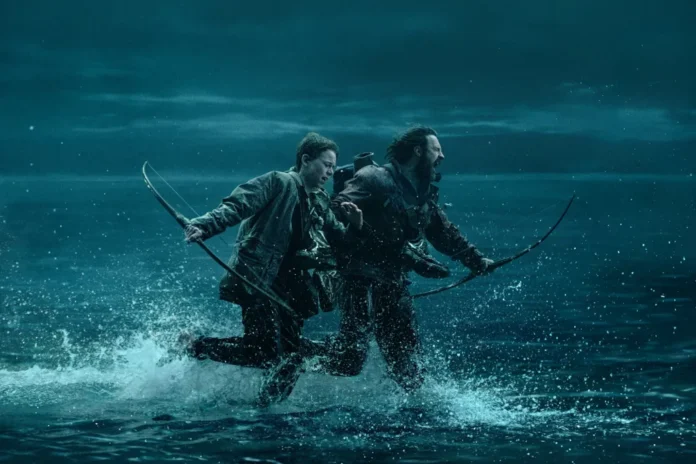The release of 28 Years Later has horror fans buzzing with excitement, as Danny Boyle and Alex Garland reunite to deliver a thrilling sequel to their 2002 classic 28 Days Later. Hitting theaters on June 20, 2025, this film has already sparked intense discussion for its bold visuals, emotional depth, and fresh take on the zombie genre. Critics are calling it a triumphant return, with newcomer Alfie Williams stealing the show as a young survivor navigating a post-apocalyptic U.K. Let’s dive into why 28 Years Later is shaping the future of horror and what makes it a must-see this summer.
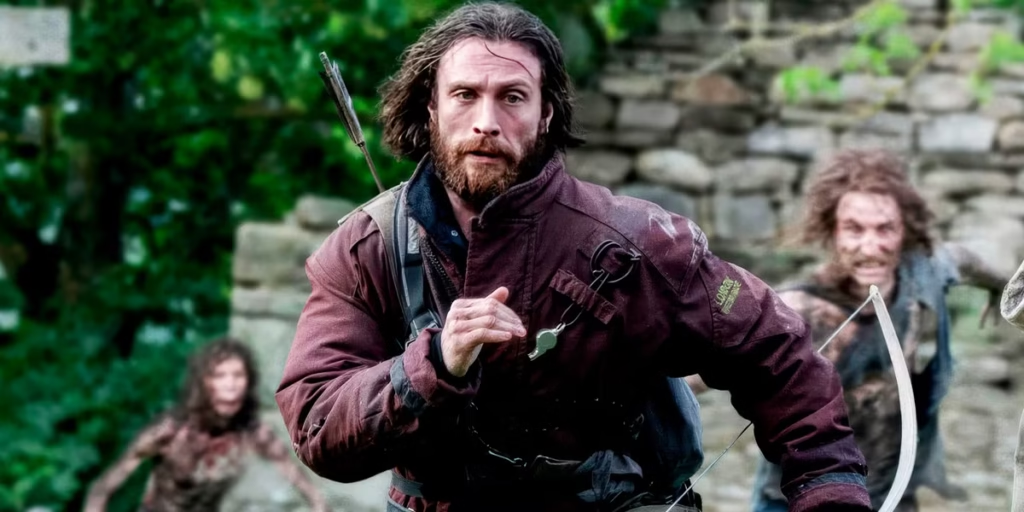
Why 28 Years Later Feels So Timely
The world has changed since 28 Days Later introduced the rage virus, a fictional plague that turned humans into fast-moving, bloodthirsty infected. Back then, the film’s eerie shots of an empty London tapped into post-9/11 fears. Now, 28 Years Later arrives in a world shaped by real pandemics, political divides, and social unrest. Director Danny Boyle has said the COVID-19 pandemic made the film’s premise feel more plausible, grounding its horror in reality.
This sequel picks up nearly three decades after the virus first ravaged the U.K., with the country now under strict quarantine. Survivors live in isolated communities, like the Holy Island refuge, while the mainland crawls with evolved infected. The story follows 12-year-old Spike, played by Alfie Williams, and his father Jamie, portrayed by Aaron Taylor-Johnson, as they venture into dangerous territory. The film’s mix of visceral action and emotional storytelling sets it apart from typical zombie fare.
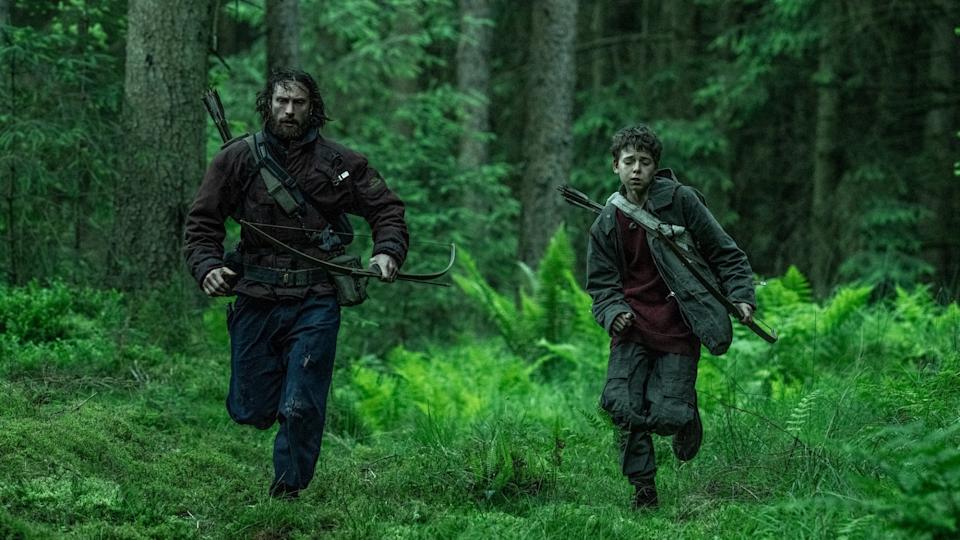
A Stellar Cast Brings 28 Years Later to Life
The ensemble cast of 28 Years Later is a major draw, blending established stars with fresh talent. Jodie Comer shines as Isla, a resilient survivor, while Ralph Fiennes delivers a scene-stealing performance as the mysterious Dr. Kelson. Aaron Taylor-Johnson anchors the father-son dynamic, and Jack O’Connell adds grit as Jimmy, a young man hardened by the apocalypse. But it’s Alfie Williams who critics can’t stop praising, with many calling his debut a breakout moment.
Cillian Murphy, the star of 28 Days Later, returns as an executive producer, tying the sequel to its roots. While his on-screen role remains unconfirmed, his involvement adds authenticity to the project. The cast’s chemistry, combined with Boyle’s kinetic direction, makes every scene pulse with intensity.
| Actor | Role | Notable Praise |
|---|---|---|
| Alfie Williams | Spike | Breakout star, emotional anchor |
| Aaron Taylor-Johnson | Jamie | Strong, layered performance |
| Jodie Comer | Isla | Fierce and compelling |
| Ralph Fiennes | Dr. Kelson | Scene-stealing, enigmatic |
Danny Boyle and Alex Garland’s Creative Reunion
The return of Danny Boyle and Alex Garland is a key reason 28 Years Later feels so special. Their collaboration on 28 Days Later redefined zombie horror with fast-moving infected and gritty visuals shot on a Canon XL-1 camcorder. After skipping the 2007 sequel 28 Weeks Later, they’re back with a bold vision. Garland’s script explores themes of death, family, and survival, while Boyle’s direction blends chaos with moments of haunting beauty.
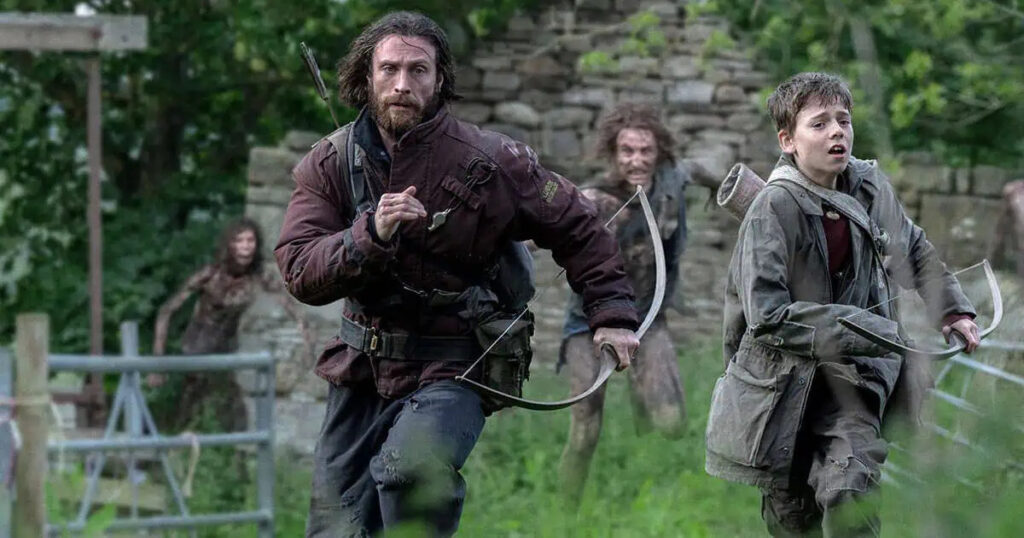
Critics have noted the film’s unconventional structure, with a second act that shifts gears dramatically. Some call it a stroke of genius, keeping audiences on edge. Others point to pacing issues, but most agree the visuals—crafted with cinematographer Anthony Dod Mantle—are stunning. From splintered montages to “bullet time” violence, 28 Years Later pushes the genre forward.
Key Point Summary
- Release Date: June 20, 2025, in theaters worldwide.
- Plot: Follows Spike and Jamie as they leave Holy Island to face evolved infected in a quarantined U.K.
- Cast: Alfie Williams, Aaron Taylor-Johnson, Jodie Comer, Ralph Fiennes, and Jack O’Connell.
- Creative Team: Directed by Danny Boyle, written by Alex Garland, with Cillian Murphy as executive producer.
- Themes: Explores family, survival, and the fear of death in a post-apocalyptic world.
- Critical Reception: Praised for visuals, emotion, and Williams’ performance, though some note pacing issues.
How 28 Years Later Redefines the Zombie Genre
Zombie movies have flooded pop culture since 28 Days Later, but this sequel stands out by evolving the infected. The film introduces “alphas,” a new strain of stronger, more aggressive infected that terrified the cast during filming. Jodie Comer and Aaron Taylor-Johnson have shared stories of running from these naked, screaming creatures, describing the experience as unnervingly real. This escalation keeps the horror fresh, even for longtime fans.
The film also weaves in deeper themes, moving beyond jump scares. It’s as much about a boy coming of age in a broken world as it is about survival. Critics have called it “surprisingly moving,” with Spike’s journey resonating on a human level. This emotional core, paired with gruesome action, makes 28 Years Later a unique entry in the franchise.
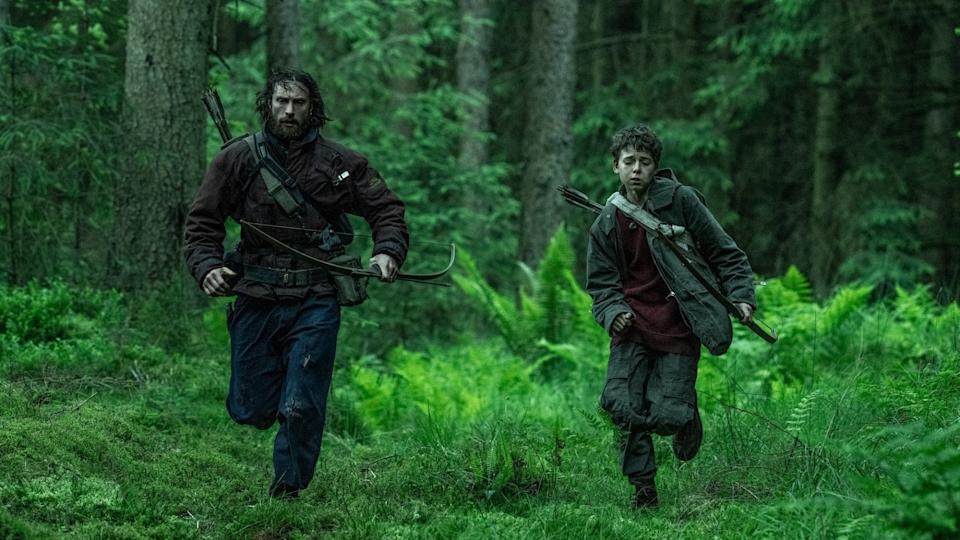
Critical Reception and Audience Buzz
As of June 18, 2025, 28 Years Later is earning strong reviews, with critics hailing it as one of the year’s best horror films. Publications like Rotten Tomatoes highlight its “eye-catching visuals” and “unexpected choices,” while Mashable calls it a “triumphant return.” Some reviewers, like those at the Irish Independent, feel it lacks the raw terror of the original, but others, including Variety, praise its bold allegory about fear and death.
Audience reactions on social media are equally enthusiastic. Fans are raving about Alfie Williams’ performance and the film’s intense action sequences. However, the cliffhanger ending has sparked debate, with some eager for the next chapter and others frustrated by unresolved questions. The buzz is undeniable, and the film’s social media embargo—lifted just 24 hours before release—has only fueled anticipation.
The Making of 28 Years Later
Shot partially on iPhones, 28 Years Later blends cutting-edge tech with Boyle’s signature guerrilla style. The production faced challenges, including a tight budget compared to other 2025 blockbusters like Jurassic World: Rebirth. Despite this, Boyle and his team crafted a visually striking film that feels both intimate and epic. The use of archival footage and innovative editing techniques adds a frenetic energy, immersing viewers in the chaos.
The film is the first of a planned trilogy, with 28 Years Later Part II: The Bone Temple set for January 2026. Boyle has hinted at financial hurdles for the third film, but the strong early buzz could secure its future. The decision to shoot the second film back-to-back shows confidence in the story’s staying power.

What Sets 28 Years Later Apart
Unlike many sequels, 28 Years Later doesn’t lean on nostalgia. It tells a standalone story that honors the original while carving a new path. The focus on a young protagonist brings a fresh perspective, and the evolved infected raise the stakes. Boyle and Garland’s willingness to take risks—like shifting tones mid-film—keeps the narrative unpredictable.
The film also reflects today’s anxieties, from pandemics to societal collapse. Boyle’s comment about COVID making the story “feel possible” resonates deeply, grounding the horror in real-world fears. This relevance, combined with strong performances and bold visuals, makes 28 Years Later a standout in 2025’s crowded movie slate.
Box Office Expectations and Challenges
With a reported budget of around $80 million, 28 Years Later needs to perform well to ensure the trilogy’s completion. Early projections suggest a strong opening weekend, driven by fan excitement and positive reviews. However, it faces competition from summer blockbusters and the risk of “sequel fatigue,” as Alex Garland noted in a recent interview. The film’s R rating for gore and violence could limit its audience but also attract hardcore horror fans.
The decision to release just days after major sequels like The Accountant 2 adds pressure, but the 28 Days Later brand carries weight. If word-of-mouth spreads, 28 Years Later could become a sleeper hit, much like its predecessor.
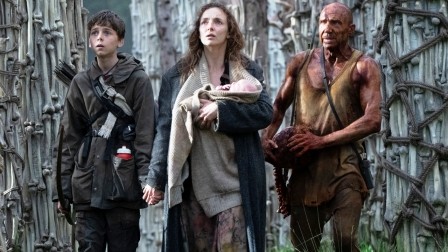
Why You Should Watch 28 Years Later
This sequel isn’t just for zombie fans—it’s for anyone who loves bold, emotional storytelling. Alfie Williams’ performance alone is worth the ticket price, and Boyle’s direction keeps you glued to the screen. Whether you’re revisiting the franchise or jumping in fresh, 28 Years Later delivers thrills, heart, and a vision of a world that feels unnervingly close to our own.
Grab your tickets for 28 Years Later and experience the horror in theaters starting June 20, 2025. Share your thoughts on social media and join the conversation about this game-changing sequel!
